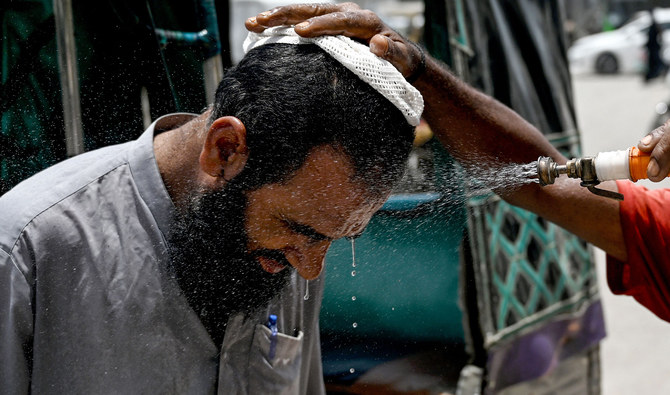KARACHI: Pakistan’s Chief Meteorologist, Sardar Sarfaraz, stated that today, Tuesday, will bring heat wave-like conditions to Karachi, the country’s southern port city. The metropolis has been enduring the intense heat this week, with temperatures reaching over 40 degrees Celsius.
Sarfaraz reports that on Monday, the temperature in Karachi was 41 degrees Celsius, or 105.8 degrees Fahrenheit. In Pakistan’s southern province of Sindh, temperatures last month surpassed 52.2 degrees Celsius (125.6 degrees Fahrenheit), marking the highest reading of the summer and approaching the nation’s record high.A group of international scientists have concluded that human-caused climate change is most likely to blame for the extreme temperatures that have occurred in Asia over the past month.
“Karachi has been experiencing a heat wave for the past two days, and this situation will persist today,” Sarfaraz stated to a private television channel. “Today’s high could reach 40 degrees Celsius or higher.”However, the meteorologist predicted that Karachi would likely see a decrease in temperature starting on Wednesday.
He predicted that Karachi’s temperature would decrease by one or two degrees and rise to 38 degrees. “This is how Karachi will spend the rest of June, but the extreme heat that has been there for the last two days will subside.”According to Sarfaraz, Karachi was suffering from extreme heat because of a low-pressure weather system that was present close to Gujarat, India, and prevented the sea breeze from reaching the city.
According to media estimates, Karachi’s intense heat on Sunday claimed the lives of at least 17 individuals. 427 bodies were transported to the Edhi morgue in Karachi between June 21 and 24, according to the director of the Edhi Foundation, the biggest philanthropic organization in Pakistan, who spoke with Arab News. He said, though, that there was no way of knowing if the heat wave was to blame for these deaths.
The organization’s leader, Faisal Edhi, told Arab News, “The Edhi morgue is full of dead bodies.” “We routinely receive between thirty and thirty-five bodies every day.”Muhammad Zeeshan, a citizen of Karachi, attributes the temperature spike to the impacts of climate change and criticizes the government for doing little to safeguard the populace.
Zeeshan told Reuters on Monday, “This is happening in Europe; they have faced intense heat but they have taken steps about it.” However, it is regrettable that the government has not acted in this way. People are suffering from daily load shedding, or power outages, caused by the power utility K-Electric, which lasts till midnight.









